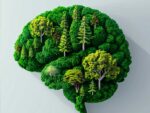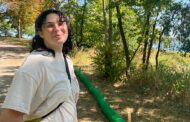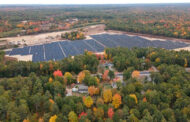WE’RE ALL IN THIS TOGETHER
Critical Thinking is a Key Missing Piece
By Philip W. Mason

There are large socioeconomic problems that need to be solved in this country. What is holding us back from collectively organizing to do that?
The bombing of Pearl Harbor and 9/11 were two events that occurred in the last 100 years that completely galvanized us as a country. Yet the climate change crisis is the biggest existential threat mankind has ever faced and relatively little is being done to solve it. We collectively don’t see it as a crisis.
Processing Fear
Why is that? Pearl Harbor and 9/11 both drove us together as a country, out of strong collective fear which is processed by a portion of the brain called the amygdala. In contrast, climate change just continually gets worse and worse as evidenced by the waterfront destruction in Maine last January. There is no sharp sense of fear felt collectively for the most part, and thus we are not driven together.
When there is an absence of fear, we can instead use our logical processing and critical thinking skills to learn what we can about a problem and generate solutions.
We can then have constructive conversations with others (by removing heated emotions) about the correctness of ours and theirs and possibly generate together ideas about solutions or how we might be able to help. Two solution examples are South Portland City Sustainability efforts and Maine already producing roughly 65% of electricity from renewables.
Critical Thinking is the Missing Piece
The process of critical thinking, put simply, effectively analyzes information and forms a judgment. It occurs in a different, high-functioning section of the brain called the prefrontal cortex, far from the fear processing amygdala. It is only through allowing widespread critical thinking to bring us together that we can solve climate change. Not to mention other socioeconomic problems like weak public educational systems, our problematic healthcare system, housing shortages… Critical thinking is a key missing piece.
According to William Henderson, author of “Master Critical Thinking, Creative, Logic, and Problem Solving Skills,” two ways we can improve our critical thinking skills are to become better at constructive conflict and discerning whether information is true or false. Education is a road to take.
Philip W. Mason grew up in rural Gorham Maine on a farm, and received a doctorate in Physics from Lehigh in 1998. He then worked in the high tech semiconductor chip field for more than 20 years. Philip currently lives in Cape Elizabeth.






1 Comments
Claire Bee
The threats resulting from climate change and the fact that we are not collectively terrified of these threats are concepts I’ve seen explored. However, using critical thinking skills to impact climate change is a unique and intriguing approach to addressing these threats. Thank you, Philip!